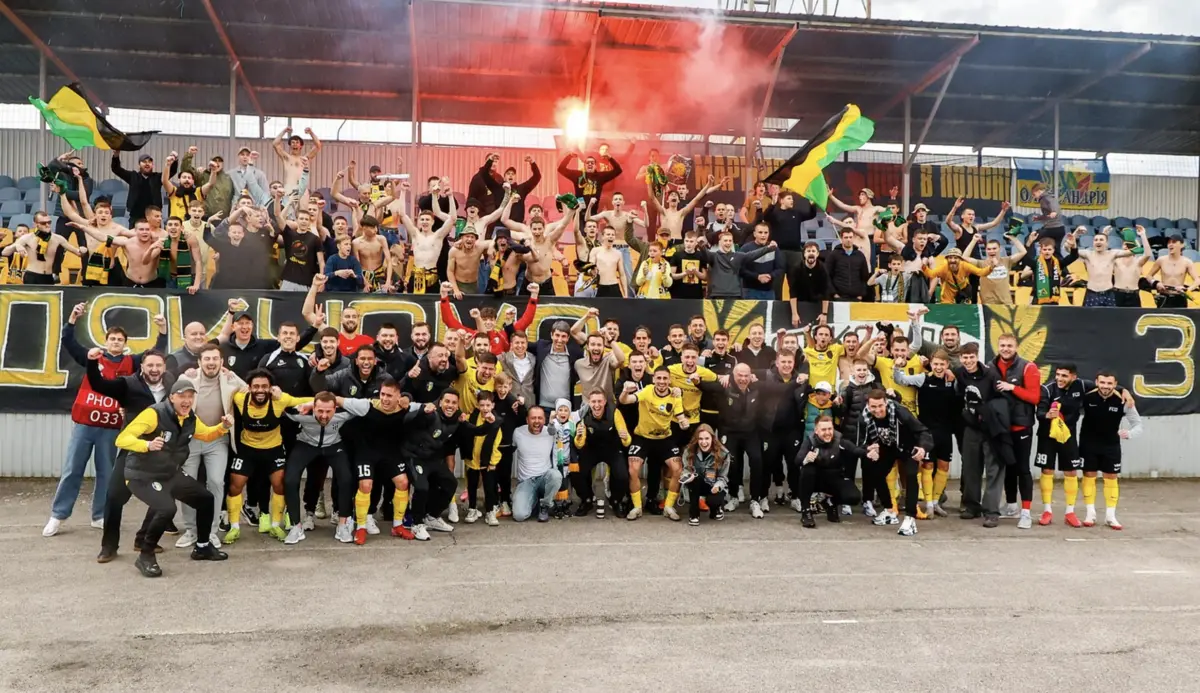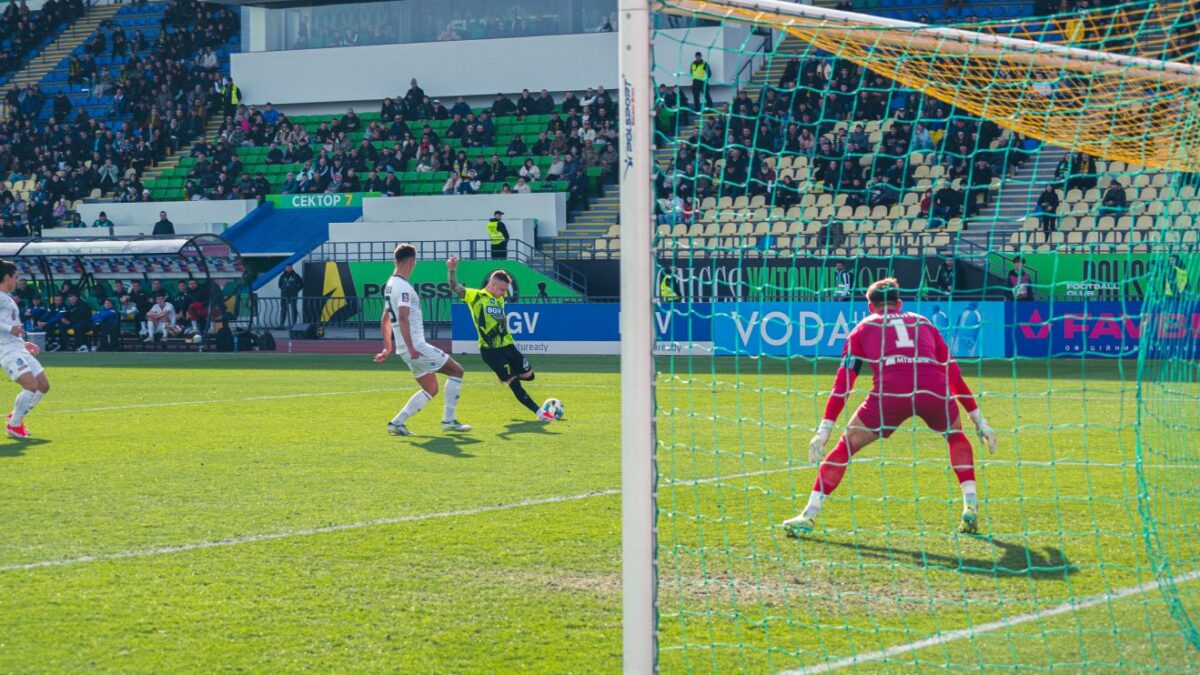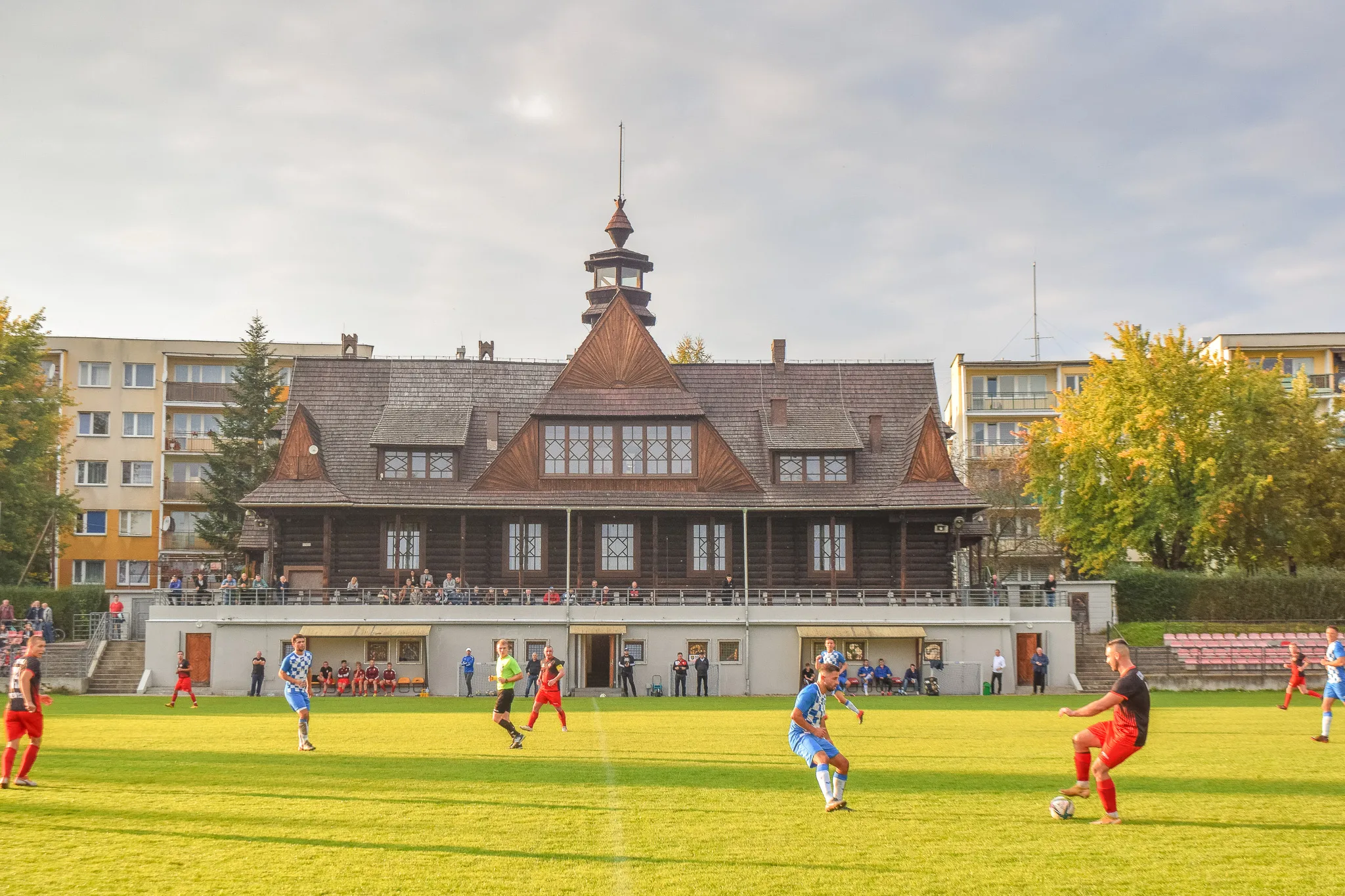For the first time in its history, FC Oleksandriya have finished a full season second in the Ukrainian Premier League (UPL), earning the club a well-deserved silver medal and a place in the UEFA Conference League for the 2025-26 season.
Although the club was founded in 1990, the year 1948 on its crest reflects its inherited football legacy from a 2014 merger with UkrAhroKom. By the early 2000s, the club had reached Ukraine’s top flight, only to withdraw in 2003 due to financial constraints. It was reborn in 2011 under coach Volodymyr Sharan, earning promotion and gradually establishing a reputation for structured, attacking football.
In the 2016-17 and 2017-18 seasons, FC Oleksandriya reached the qualifying rounds of the Europa League, reflecting its rise in Ukrainian football. The breakthrough came in 2018-19, when the club secured its first-ever Ukrainian Premier League bronze medal, earning direct entry into the Europa League group stage the following season.
But since Russia’s full-scale invasion in 2022, the challenges facing Ukrainian football have only deepened. “I don’t think it’s a secret to say that the state of Ukrainian football right now is probably at its lowest point in a very long time,” says Bradley Stafford, an Irish photographer living in Ukraine who closely follows Ukrainian football.
Despite these difficulties, Oleksandriya managed to write a new chapter this season. Oleksandriya defied expectations by going toe-to-toe with the Ukrainian heavyweights Shakhtar Donetsk and Dynamo Kyiv. Oleksandriya finishing ahead of Shakhtar this season is a headline few would have predicted at the start of the campaign.
“Rotan’s men have arguably been the best footballing side in the league and gave Dynamo a battle until the very end,” says Andrew Todos, founder of the Ukrainian football blog Zorya Londonsk. Oleksandriya narrowly missed out on first place to Dynamo this season, but with much fewer resources. “Manager of the season without a doubt,” notes Todos.
The man in charge
Since taking charge in 2023, Ruslan Rotan has transformed Oleksandriya into a dynamic side. He recently became only the second manager in the club’s history to reach 30 Premier League victories, behind only Sharan, who holds the record with 69. The Miners Weekly, an English-language podcast covering Ukrainian football, wrote on social media: “Give all the money in the world to Ruslan Rotan,” suggesting that Shakhtar should consider hiring him.
Todos echoes this praise, stating: “Ruslan Rotan has proven over the past few years that he’s a very capable coach when given time with his players. This was evident with his U21 national side, which reached the Euro semi-finals in 2023, and now with Oleksandriya.” However, Andrii Senkiv, a Ukrainian sports journalist who is currently serving in the Ukrainian army pointed out that if it weren’t for Shkathar’s collapse this season, “Oleksandriya’s season wouldn’t have been so magical.”
“He’s a good man manager, seems to be very hands on and personable with the players. His leadership skills from his playing days as captain have helped out in that aspect,” noted Todos. Rotan’s tactics continued to evolve and “over time he became more flexible as the team began playing in a more balanced and pragmatic way,” noted Senkiv. “He managed to find the golden middle ground.”
British-Ukrainian football fan Michael Jaworskyj also praised Rotan’s impact. “Ruslan Rotan has been an absolute magician for Oleksandriya this season. What’s really stood out to me is how well he handles the basics – he keeps it simple, plays to his strengths, and ensures the team is always organised and disciplined. That foundation has been crucial for their progress.”
“His man-management has also been a huge factor in Oleksandriya’s development,” he added. “You can see the belief running through the entire squad, with everyone buying into his ethos. In my opinion, their squad morale is one of the best in the league right now.”
“I’m genuinely excited to see where Rotan can take this team. Very positive times ahead for Oleksandriya,” said Jaworskyj.
This success has not gone unnoticed. Rotan is reportedly being courted by a Saudi club, according to Ukrainian football journalist Viktor Vatsko. Olekandriya is also holding contract negotiations to keep their coach for at least another season. A decade ago, Rotan was a key figure in FC Dnipro’s remarkable run to the UEFA Europa League final – a Cinderella story that ended with a narrow defeat to Sevilla. Now, he’s building something special from the touchline.
“Smart and targeted recruitment, paired with his management style, has created the perfect storm this campaign: attractive, attacking football driven by a bold mix of experienced Ukrainian players and creative foreign talent,” added Todos.
Star performers
Among the club’s standout performers is Tedi Cara, a January arrival who quickly became one of the players of the season. “He’s definitely been a net positive for us,” says Rotan. Midfield depth was further strengthened in the winter with the signing of Volodymyr Shepelev, a free agent after leaving Dynamo Kyiv.
“The club found several very interesting and inexpensive foreign players, such as Bezerra, Tsara, Kampush,” says Senkiv. “They also found experienced players like [Oleksandr] Filippo, [Volodymyr] Shepelev, and Shabanov. Initially, Rotan’s team focused on talented youth, but it was difficult to achieve consistent results. In the end, they managed to find balance here as well.”
The team’s success has also helped elevate individual talent onto the international stage. Defensive midfielder Ivan Kalyuzhnyi received his first call-up to the Ukrainian national team in late 2024, making his debut in a 1–0 Nations League win over Georgia in October. “Ivan shows his leadership in training – he earned that national team call-up this season for a reason,” says Rotan. With his contract set to expire this summer, a move to another European club appears likely.
Following their victory that secured second place, Rotan praised his players while pointing to future ambitions as the club will play in European competition next season.“I’m very happy for the guys and for the result they achieved for Oleksandriya. I told them this openly: they did an incredible job. This was truly a team. But I also told them honestly – they’re capable of more,” said Rotan after Oleksandriya’s victory over Veres Rivne, which secured the club’s historic silver medal.
Rotan added, “To go further, you need the desire and even more hard work. What we’ve seen so far is just a small light ahead. And we still have a long road to walk, one that will require a lot of effort. But they have the potential.”
“Congratulations to Oleksandriya on this historic achievement. But there’s still room to grow.”
Fans and players of FC Oleksandriya celebrate as the club’s second in Ukraine’s Premier League. Photo: FC Oleksandriya Facebook page.






